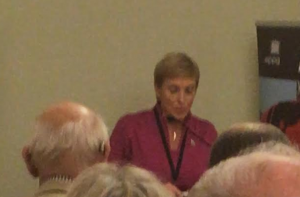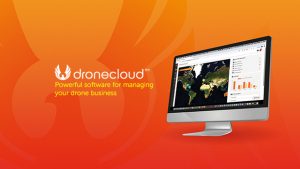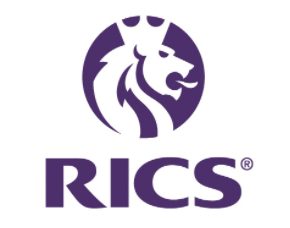
|

On June 11th 2019, the Science and Technology Committee were joined by the Defence Committee to continue their Inquiry into Commercial and Recreational Drone Use in the UK. DJI presented oral evidence, along with other key stakeholders in the drone industry, including ARPAS-UK. DJI’s representative, Brendan Schulman, Vice President for Policy & Legal Affairs, was repeatedly asked about DJI’s data security.
Afterwards ARPAS-UK spoke with DJI to reinforce the message that commercial drone operators are being asked by their clients about data security too. In the light of this, the following interview was arranged between Graham Brown, CEO of ARPAS-UK, and Christian Struwe, Head of European Public Policy at DJI, with the aim of establishing the facts.
Graham:
Hi Christian, thanks for speaking to us today. We’re hoping to get some further information after DJI’s Vice President for Policy and Legal Affairs, Brendan Schulman, appeared in front of a parliamentary committee last month to answer MPs’ questions about drones. He was asked repeatedly about the data security of DJI drones, and it would be really helpful for our members to also get some further clarification on this topic.
Christian:
Thanks for inviting me. The UK is one of DJI’s most important markets and we see a lot of fantastic drone applications. We recognise that in order for this to continue, users need to be reassured that they can have complete confidence in our products and the security of their data.
Graham:
So what actually happens to the data that our drones create? Where does it go and who controls it?
Christian:
DJI drone operators maintain absolute control over their data – at all times. DJI drones do not share flight logs, photos or videos whatsoever unless the drone pilot deliberately chooses to do so. In other words, your data will remain solely on the drone itself and on your mobile device unless you actively choose to share it with DJI, for instance in case of a repair service that a user requires. On top of this, all of our products are protected by embedded passwords and data encryption features.
Graham:
And what would you say to those who still remain yet to be convinced about data security of DJI drones, in spite of this?
Christian:
Well, we have independently verified that DJI drones don’t share data unless prompted to by the pilot, through a third party security review of our technology by a renowned US-based cyber forensic firm at the beginning of last year. Since 2017, users of DJI drones have also been able to use Local Data Mode. This feature allows for complete disconnection between the pilot’s app and any internet connection – meaning, for example, that the location of the user can’t be detected by the app at all, let alone shared anywhere.
Graham:
Given recent accusations about the technology produced by Chinese companies, like DJI, being used by foreign governments to spy on countries like the UK, do you think that these provisions are watertight enough even for those conducting the most sensitive operations, such as police forces?
Christian:
We have full confidence in the security of our products, but to offer even further reassurance for the most security conscious of our customers, DJI has also made available a FlightHub Enterprise edition and a Government edition, allowing operators to feel totally confident with data backed up to their own personal servers. The Government edition even prevents users from transferring data off of the drone to other parties, whether intentional or accidental, and has restricted hardware pairing to prevent the use of any unsecure hardware or unauthorised third-party applications. The U.S. Department of the Interior has recently independently validated and approved this Government edition, confirming after 15 months of rigorous assessment with expert industry partners like the NASA Kennedy Space Center, that no data whatsoever would be transmitted outside of the system and that it was therefore safe for them to use.
Graham:
Finally, how do you keep pace with unprecedented and emerging cybersecurity risks to ensure that your drones don’t become susceptible to new threats?
Christian:
We operate a global Bug Bounty Programme which has internationally renowned security researchers continuously working to identify any potential gaps so that they can be swiftly resolved. DJI’s prioritisation of data security means that the company is constantly working towards further improvement.
For more information, DJI data security in the UK 090719

Lord Kirkhope launched his Inquiry into UK Airspace yesterday, 8th July 2019. This was commissioned for and published by the All Party Parliamentary Group on General Aviation.
The Inquiry was given a broad remit, looking at the design, governance and the future of UK lower airspace.
ARPAS-UK CEO, Graham Brown, attended on behalf of the Members.
ARPAS-UK contributed to the Inquiry in the form of oral evidence presented by Rupert Dent, Regulations Director, on 5th February 2019. ARPAS-UK was the only drone organisation to input into this Inquiry purely on behalf of drones. The BMFA did so too on behalf of their members.
Attached is the Inquiry pdf: Lord Kirkhope Inquiry July 2019


As the world’s leader in civilian drones and aerial imaging technology, we feel it is our duty – on behalf of the millions of responsible drone users around the globe – to express our deep disappointment at the BBC’s negative portrayal of drone technology and one-sided reporting based on hearsay. This now seems to be an established pattern of reporting by the BBC, with such bias appearing both during Panorama’s “The Gatwick Drone Attack” that aired April 15, 2019, and more recently during Horizon’s “Britain’s Next Air Disaster? Drones,” aired July 1, 2019.
The BBC is a public service broadcaster whose remit is to “inform, educate, and entertain.” We strongly believe that both these programs fall very short of informing and educating viewers in an impartial and accurate manner. It is the BBC’s duty to paint a more nuanced picture of the events at Gatwick, given that there is still no firm conclusion due to the lack of physical evidence or any photographic material to prove that a drone was even the actual cause of the disruptions, and therefore no information upon which to analyze the actual risk or threat to aviation. In relation to “Britain’s Next Air Disaster? Drones,” only about one minute of an hour-long program was given to the multitude of benefits that drone technology has to offer society.
DJI was approached by both the Panorama and Horizon production teams and provided plenty of input including an interview and in-depth background information. However, almost none of the material was included in either program. We have to assume this is because the BBC ultimately preferred to boost viewing figures by focusing on sensational, high-risk scenarios that are vanishingly rare or almost impossible, while ignoring evidence that drone technology is safe and that the drone industry itself has implemented various features to mitigate the risks described. This cannot be construed as balanced or impartial in anyone’s book.
Today, we want our readers to take part in the discussion by sharing with you an open letter we have sent to the Director-General of the BBC.
![]()
Please read the full letter here.
From: https://content.dji.com/dji-challenges-accuracy-balance-of-bbc-drone-report/
4th July 2019

ARPAS Statement – BBC 2 Documentary “Britain’s Next Air Disaster? Drones?” – Aired Mon 1 Jul 2019
ARPAS members have expressed deep concern and criticism of the BBC Two documentary, ‘Britain’s Next Air Disaster? Drones?’, which aired on Monday 1 July 2019 and which focussed heavily on the illegal and malevolent use of drones in UK airspace, exaggerated the risks and presented a one-sided view that has the potential to harm the livelihood of ARPAS members.
ARPAS acknowledges that mid-air collision, unauthorised flight within restricted and sensitive airspace as well as deliberate nefarious use, are the most credible causes of a serious incident involving a drone but a balanced assessment of risk is always a combination of severity and likelihood. ARPAS believes the programme overemphasised the former and neglected to realistically assess the latter.
As a public service broadcaster, the BBC has a responsibility to provide its viewers with balanced reporting which, on this occasion, we believe it failed to do. ARPAS is the UK’s trade association representing the unmanned aviation industry and we would hope that in the future, programme makers ask us to contribute in order to gain a more balanced view.
ARPAS vigorously supports the legal, safe and legitimate uses of drones and strongly believes this represents the vast majority of recreational users and all the commercial users amongst its members for whom it will continue to advocate.
ARPAS has raised a complaint with the BBC and contacted BBC Points of View. We encourage you to do the same.
Links:
Contact:

 Advanced features include network management, where operators can manage subcontractors, fleet management, pilot logs as well as sharing and visualisation. Powerful project management tools give the operator’s clients complete transparency as to the status of their jobs. A single logon to accesses outcomes and audit trails. Flight planning is supplied through a partnership with Altitude Angel which provides the highest-quality, real-time geospatial data.
Advanced features include network management, where operators can manage subcontractors, fleet management, pilot logs as well as sharing and visualisation. Powerful project management tools give the operator’s clients complete transparency as to the status of their jobs. A single logon to accesses outcomes and audit trails. Flight planning is supplied through a partnership with Altitude Angel which provides the highest-quality, real-time geospatial data. Dronecloud was funded and developed from our own drone service operation and we’re proud to have built such an innovative platform without the need for outside investment.
Dronecloud was funded and developed from our own drone service operation and we’re proud to have built such an innovative platform without the need for outside investment.
The document “Drones: Applications and Compliance for Surveyors” by RICS highlights the increasing role of unmanned aerial vehicles (UAVs) or drones in various surveying practices. It discusses their applications in geospatial surveying, environmental monitoring, agriculture, and construction, among others.
Key opportunities presented by drones include increased efficiency and access to hard-to-reach areas, while challenges involve compliance with varying national regulations, ensuring proper training, and maintaining data security. The report emphasizes the importance of adhering to legal requirements, obtaining necessary certifications, and using drones responsibly. It also explores the evolving drone technology, including sensors like LiDAR and thermal cameras, which offer enhanced capabilities for surveying tasks.
Read more Drones & Industry Reports
2019